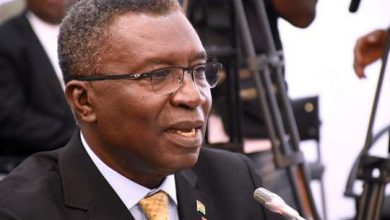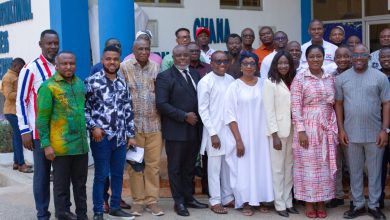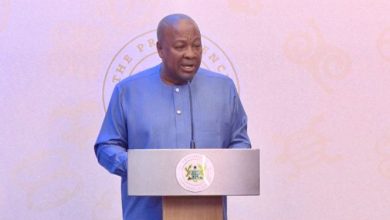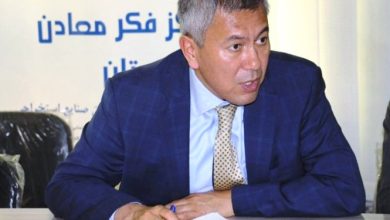Akufo-Addo not against small-scale mining – Abu Jinapor
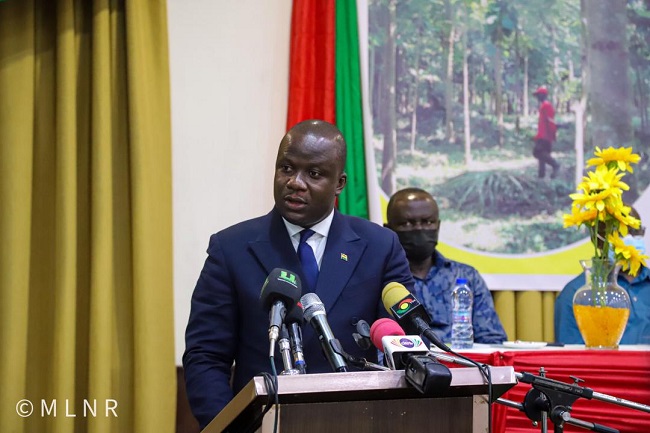
The Minister of Lands and Natural Resources, Samuel Abu Jinapor, has affirmed the government’s commitment to fighting illegal mining, popularly known as “galamsey”.
He said the government was not against small-scale mining but rather irresponsible mining that destroyed the natural environment.
“Our efforts, which are necessary to clamp down on galamsey, have sometimes been interpreted to mean the government of President Akufo-Addo is against small-scale mining,” he said.
Mr Jinapor was speaking at the opening ceremony of a two-day Transformational Dialogue on Small-Scale Mining organised by the University of Energy and Natural Resources (UENR) at Fiapre near Sunyani in the Bono Region yesterday.
He said it was rather the commitment of President Akufo-Addo to promote responsible small-scale mining, which was demonstrated in the reduction of withholding tax on unprocessed gold by small-scale miners, which was introduced in 2015, from three per cent to 1.5 per cent.
The dialogue organised on the theme: “Sustaining Environmental Security and Human Rights in Small-Scale Mining Operation in Ghana”, is to create a unique platform to undertake in-depth discussions on one of the most pressing issues, not only in our country, but across the globe on the sustainable exploitation of natural resources.
It brought together representatives of the Ghana National Association of Small-Scale Miners, Association of Women in Mining in Africa and Ghana, the Regional House of Chiefs, Large-Scale Mining companies, students and civil society organisations, among others.
Under Severe Stress
Mr Jinapor said in recent years, the world’s natural resources had come under severe stress due to rapid population growth and urbanisation, increasing agriculture production and high demand for raw materials to meet the needs of the modern-day sophisticated lifestyle and climate change.
He explained that the demand for raw materials globally had doubled in the last 20 years, adding that the increasing demand for resources had also contributed to the climate crisis, thereby worsening the pressure on these resources, and causing a form of a vicious cycle between climate change and resources.
Mr Jinapor said governments across the world were changing measures to address the emerging changes and improve the sustainability of land and resources.
Economy
The minister said mining continued to be the backbone of the national economy, “but for many years, small-scale mining remain illegal until it was formalised in 1989, through three sets of laws”.
He said since the formalisation, the small-scale mining sector had increasingly contributed to the national economy, reaching over 40 per cent in 2018.
“Last year, for example, the sector produced a total of 712, 405 ounces of gold; bringing in almost $1.2 billion in export receipts.
Today, all diamonds produced in the country are from small-scale mining, which in 2022 amounted to 82,251.99 carats,” he stated.
Mr Jinapor said apart from their contribution to the gold and diamond output, the sector was a source of employment to thousands of people and supported the lives and livelihoods of millions of citizens.
He, however, expressed concern about the increasing illegalities associated with the sector, adding that their effect on the environment had, sadly, resulted in small-scale mining being associated with environmental destruction.
Greedy
Mr Jinapor said apart from greedy and unscrupulous nation wreckers who destroyed the environment due to their interests, the drivers of the illegalities in the small-scale mining sector included unemployment, the lack of blocked-out areas for small-scale mining, challenges with securing licences and other regulatory permits and the lack of law enforcement.
He said the government was implementing policies and measures aimed at addressing the drivers such as the National Alternative Employment and Livelihood Programme, alternative sources of income and livelihood to persons engaged in mining.
Mr Jinapor explained that the programme employed several youths in the production of seedlings and reclamation of degraded mined lands.
Source: graphic online


